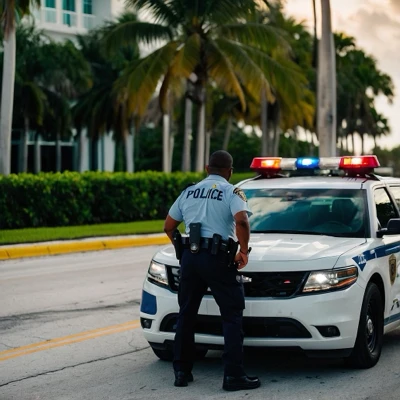Sex Crimes in Florida
Our Florida Sex Crime Defense Lawyers Defense Sex Crimes in Florida
Sex crimes represent a severe violation of personal integrity and safety, carrying significant legal and social consequences. In Florida, the complexity and prevalence of these crimes necessitate a detailed examination to understand their impact, trends, and the state’s response. This article delves into various aspects of sex crimes in Florida, including statistical trends, legal frameworks, notable cases, and preventive measures.
Statistical Trends and Prevalence of Sex Crimes in Florida

Rape and Sexual Assault: The FDLE’s Uniform Crime Report indicates that the rate of reported rapes in Florida was 46.8 per 100,000 residents in 2021. This is slightly above the national average of 43.6 per 100,000, suggesting that Florida faces a significant challenge in combating this heinous crime (Federal Bureau of Investigation [FBI], 2021).
Child Molestation and Exploitation: Child sex crimes are particularly alarming. The National Center for Missing and Exploited Children (NCMEC) reports that Florida consistently ranks among the top states for child exploitation incidents. In 2020, there were over 12,000 reports of suspected child sexual exploitation, a figure that underscores the critical need for targeted interventions (NCMEC, 2020).
Human Trafficking: Florida is also a hotspot for human trafficking, often related to sex crimes. The state ranks third in the nation for the number of human trafficking cases reported to the National Human Trafficking Hotline. In 2020, there were 738 reported cases, many involving sexual exploitation (Polaris, 2020).
Legal Framework and State Response to Sex Crimes in Florida
Florida has implemented robust legal measures to combat sex crimes, with a focus on stringent penalties and support for victims. The legal framework is designed to deter potential offenders and ensure justice for victims.

Jessica’s Law: Enacted in 2005, Jessica’s Law imposes severe penalties for sex crimes against children. Named after Jessica Lunsford, a young girl tragically murdered by a convicted sex offender, the law mandates a minimum sentence of 25 years and lifetime electronic monitoring for those convicted of certain sex crimes against minors (Florida House of Representatives, 2005).
Victim Support and Advocacy: Florida provides comprehensive support services for sex crime victims. The Florida Council Against Sexual Violence (FCASV) offers resources, advocacy, and counseling services to help victims navigate the aftermath of their trauma. The state also has a Victim Compensation Program to assist with medical expenses, counseling, and other costs related to the crime (FCASV, 2021).
Notable Florida Sex Crime Cases and Their Impact
Several high-profile cases in Florida have brought national attention to the issue of sex crimes and spurred legislative and social change.
Jeffrey Epstein Case: One of the most infamous cases involved financier Jeffrey Epstein, who was arrested in 2019 on federal charges of sex trafficking minors in Florida and New York. Epstein’s arrest and subsequent death in custody highlighted systemic failures in addressing sex trafficking and protecting victims. The case also underscored the importance of robust law enforcement and judicial oversight in preventing powerful individuals from exploiting vulnerable populations (U.S. District Court, Southern District of Florida, 2019).
The Case of Rayne Perrywinkle: In 2013, eight-year-old Cherish Perrywinkle was abducted from a Jacksonville Walmart and later found murdered by a registered sex offender. This case prompted public outrage and led to calls for stricter monitoring and harsher penalties for sex offenders. The tragedy of Cherish Perrywinkle emphasized the necessity of vigilant enforcement of existing laws and proactive measures to prevent recidivism among offenders (State of Florida vs. Donald James Smith, 2013).
Preventive Measures and Community Efforts on Sex Crimes in Florida
Prevention is a critical component in addressing sex crimes. Florida has implemented various programs and initiatives to reduce the incidence of these crimes through education, awareness, and community involvement.
Educational Programs on Sex Crimes in Florida: Schools across Florida have integrated programs that educate children and adolescents about personal safety, consent, and the dangers of sexual exploitation. These programs aim to empower young people with knowledge and tools to protect themselves and report suspicious activities.
Public Awareness Campaigns and Sex Crimes in Florida: Organizations like the FCASV conduct public awareness campaigns to highlight the prevalence of sex crimes and the importance of reporting. Campaigns such as “Start by Believing” encourage community members to support survivors and foster an environment where victims feel safe to come forward (FCASV, 2021).
Law Enforcement Training on Sex Crimes in Florida: Continuous training for law enforcement officers on handling sex crime cases sensitively and effectively is crucial. Florida’s Office of the Attorney General offers specialized training programs to improve the skills and knowledge of officers in investigating and prosecuting sex crimes.
Community Involvement with Sex Crimes in Florida: Community engagement is vital in preventing sex crimes. Neighborhood watch programs, community alert systems, and collaboration between law enforcement and local organizations play a significant role in creating safer environments. By fostering a community that looks out for one another, Florida aims to reduce opportunities for offenders to commit sex crimes.
Challenges and the Path Forward with Sex Crimes in Florida
Despite significant efforts, Florida faces ongoing challenges in addressing sex crimes. Underreporting remains a critical issue, as many victims hesitate to come forward due to fear, shame, or distrust of the legal system. Enhancing trust between communities and law enforcement, providing comprehensive support for victims, and ensuring swift and just legal processes are essential steps forward.
Technological Advancements and Sex Crimes in Florida: Leveraging technology to combat sex crimes is a promising avenue. Advanced forensic techniques, data analysis, and online monitoring tools can help identify and apprehend offenders more efficiently. Furthermore, using technology to educate the public and provide resources for victims can enhance preventive measures.
Policy Reforms for Sex Crimes in Florida: Continuous evaluation and reform of policies related to sex crimes are necessary to adapt to evolving societal challenges. Ensuring that laws are up-to-date and reflect the current understanding of sexual violence and exploitation is crucial for effective prevention and justice.
Conclusion on Sex Crimes in Florida
Sex crimes in Florida represent a profound societal challenge, affecting thousands of individuals and communities each year. The state’s multifaceted approach, encompassing stringent legal measures, victim support, and preventive initiatives, demonstrates a committed effort to address this issue.
However, ongoing challenges necessitate persistent vigilance, community involvement, and adaptive strategies to ensure the safety and dignity of all residents. By fostering a culture of awareness, support, and justice, Florida can continue to make strides in reducing the prevalence of sex crimes and supporting survivors in their journey toward healing.
References for Sex Crimes in Florida
•Florida Department of Law Enforcement (FDLE). (2021). Uniform Crime Report. Retrieved from FDLE Website
•Federal Bureau of Investigation (FBI). (2021). Crime in the United States. Retrieved from FBI Website
•National Center for Missing and Exploited Children (NCMEC). (2020). Annual Report. Retrieved from NCMEC Website
•Polaris. (2020). Human Trafficking Hotline Statistics. Retrieved from Polaris Project Website
•Florida Statutes. (2021). Sexual Predator Act. Retrieved from Florida Legislature Website
•Florida House of Representatives. (2005). Jessica’s Law. Retrieved from Florida House Website
•Florida Council Against Sexual Violence (FCASV). (2021). Programs and Services. Retrieved from FCASV Website
•U.S. District Court, Southern District of Florida. (2019). United States vs. Jeffrey Epstein. Retrieved from [Court Documents]
•State of Florida vs. Donald James Smith. (2013). Case Files. Retrieved from [Court Records]
